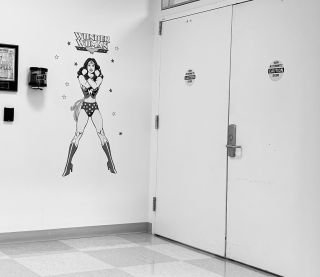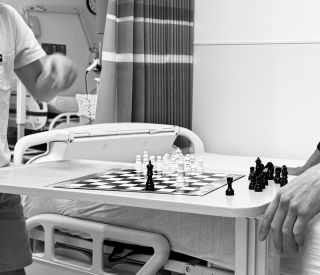Caregiving
Seeking Normalcy
Cultivating normalcy is an important care partner goal.
Posted July 25, 2024 Reviewed by Gary Drevitch
Key points
- Caregiving varies by disease.
- Normalcy is a lofty but attainable goal.
- Team harmony and humor matter.

Recently I visited friends in Portland at the Ronald McDonald House where they were staying for the month because their 8-year-old son required treatments at nearby Doernbecher Children’s Hospital. His cancer—precariously close to remission—had returned. My lengthy journey with my husband’s Parkinson’s disease felt tiny by comparison. Young onset Parkinson's is an endurance contest requiring resilience, patience, and grace but cancer requires so much more. Fighting is the metaphor most used and beating cancer is the imperative. And yet when the combatant is a bright athletic child, battling feels all wrong. Superhero images caught my attention in the waiting room, inspiring kids—and their parents—to invoke their own superpowers. I wondered how my little friend could remain a child when asked also to be a warrior? And what about his parents?
Team harmony was essential and extended beyond the immediate family to the entire staff working toward the same goal: cure. I witnessed exceptional bravery from the grade-schooler who had befriended and charmed the entire team during his treatment. He was on a first-name basis with the receptionist, food-delivery person, and each of his many nurses. He’d taken to wearing a pair of tiny hands—rubber finger puppets that attached to the index finger of each hand—to elicit laughter. They looked hysterical, especially when he donned his father’s flannel shirt which draped his body and fell below his knees. One of his nurses said he was suited to becoming an actor in a sitcom because his timing and delivery were so good. Humor helped him build rapport and create a buffer between the agony of the medications and sheer tedium of delivery. His treatments were ultra-marathon length events and he’d been in this brightly colored treatment zone for two 10-hour days already earlier in the week. More long days were scheduled.
Visiting the transfusion clinic and observing his father thoughtfully playing chess with him while nurses popped in and out gave me insight into a different kind of care team strategy from my own. The nurses added humor and tenderness wherever possible while leaning into their young patient’s wit and wisdom. They seamlessly went about their duties, always mindful to remain upbeat. Chess was a distraction but also an apt metaphor reflecting patience and focus while rewarding strategy and competitive desire within the confines of the chess board itself. But the game was also an outlet for play, and playing was key to finding —or keeping—a routine.

As moved as I was by the environment and the diminutive patient’s endurance, it was also his parents who gained my admiration. When treatment finished, if he had the energy, they gave him the run of the play area including a little ramp where the kids, including his younger brother, rode small four-wheeled vehicles at speed around a banked turn like a miniature summer bobsled run. It was nourishment for the spirit. How easy it would have been for his parents to try to restrict activity and hold him too close. Instead, they recognize he’s a kid needing to do kid things and that in the moment of play, nothing else mattered. Cancer took a back seat.
The experience taught me a valuable lesson in caregiving: to keep it normal despite the changing landscape and unexpected reversals. It is a lesson in the importance of fighting for, or simply finding, moments of normalcy. From my perspective as a care partner, this is what I crave most for us and what I took with me from my brave friends: to keep striving for normal no matter where disease takes us.


